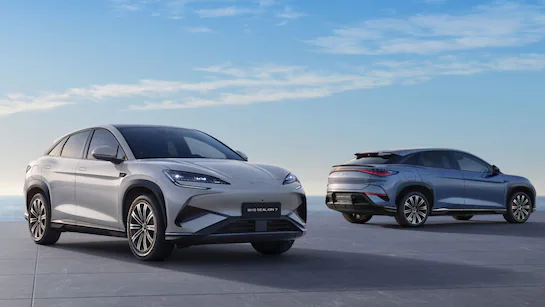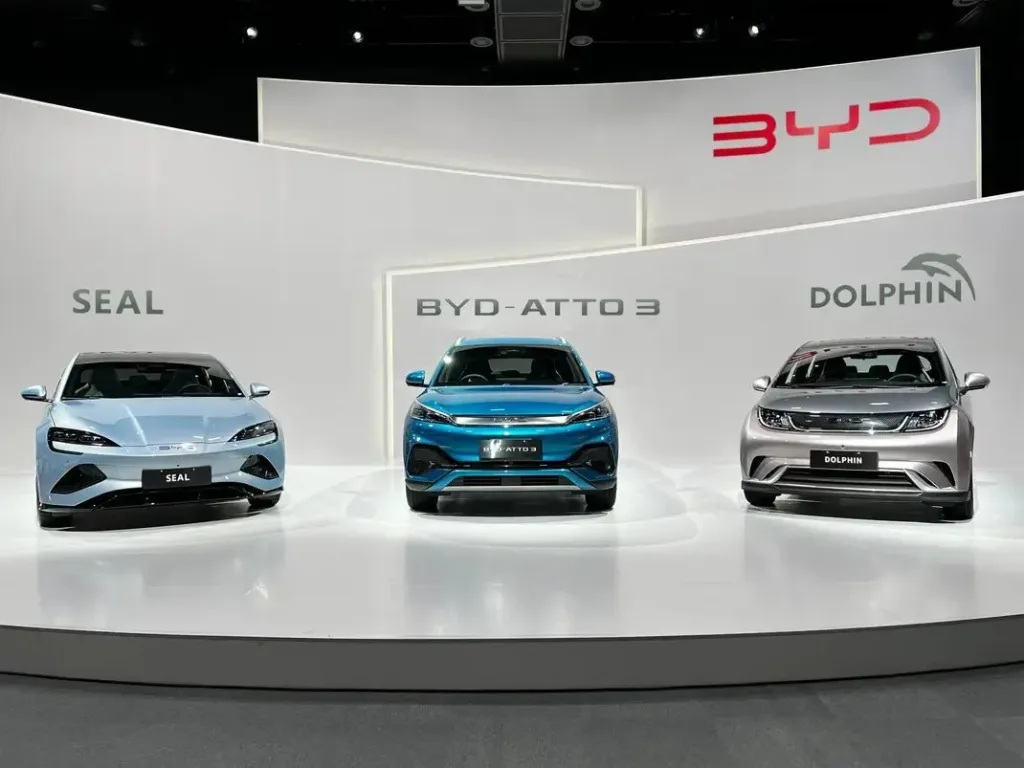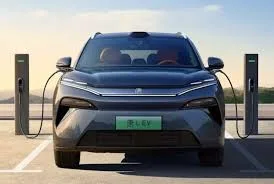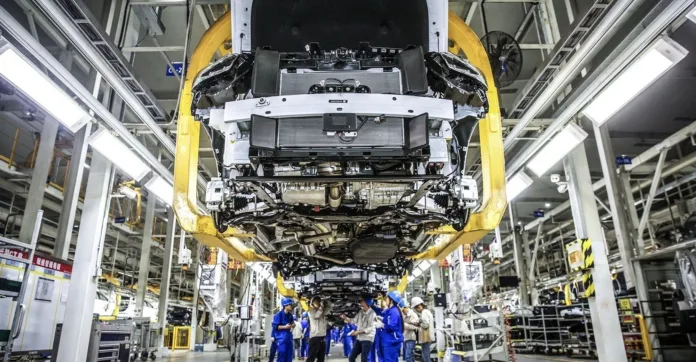In a move that signals a seismic shift in India’s automotive landscape, Chinese electric vehicle giant BYD is making headlines with its ambitious plans to establish a massive manufacturing facility in India. The company, which has already surpassed Tesla as the world’s largest EV manufacturer by sales volume, is now setting its sights on conquering the Indian market with a groundbreaking ₹85,000 crore ($10.2 billion) investment.
Table of Contents

How EV Cars in India Will Change After BYD’s Entry
The landscape for EV cars in India is set to transform with BYD’s entry. Currently, EV cars in India represent only about 2% of the total automotive market, but this percentage is expected to grow significantly in the coming years. BYD’s massive investment and production capacity could be the catalyst that accelerates this transition.
Rajeev Sharma, an automotive industry analyst based in Mumbai, explains: “This is not just another factory announcement. BYD’s entry with such a substantial investment signals a vote of confidence in India’s EV future. We’re looking at a potential game-changer that could drive down prices through economies of scale and make electric vehicles accessible to the average Indian consumer.”
The competition among EV cars in India will intensify as BYD brings its advanced technology and competitive pricing strategy to the market. Established players like Tata Motors, Mahindra, and MG Motor will need to accelerate their own EV plans to maintain market share.
BYD Electric Car Production: Scale and Ambition
Each BYD electric car will benefit from the company’s advanced Blade Battery technology, known for its exceptional safety standards and efficiency. The production capacity for BYD electric car models will reach an impressive 600,000 units annually once the facility is fully operational.
To put this in perspective, India’s total EV sales in 2023 were approximately 150,000 units. BYD’s planned capacity is four times that figure, highlighting the scale of their ambition in the Indian market.
The Telangana Advantage
The Telangana government has played a crucial role in securing this investment. Officials have proposed three potential sites near Hyderabad and are offering comprehensive support to BYD, including:
- Road tax exemption for EVs
- Registration fee waiver until December 31, 2026
- Dedicated infrastructure support
- Land allocation assistance
“Telangana’s proactive approach and strategic location make it an ideal hub for our manufacturing operations in India,” said a BYD spokesperson. “The state’s supportive policies and growing industrial ecosystem align perfectly with our long-term vision for the Indian market.”
India Manufacturing Boost: BYD’s Impact on Local EV Ecosystem
This project represents a significant boost to India manufacturing capabilities in the EV sector. Beyond vehicle assembly, BYD plans to establish a 20-gigawatt battery production plant, creating a comprehensive manufacturing ecosystem.
The India manufacturing landscape will benefit from:
- Technology transfer and skill development
- Development of a local component supplier network
- Creation of thousands of direct and indirect jobs
- Acceleration of EV infrastructure development
“BYD’s commitment to India manufacturing includes not just assembly but the entire value chain,” notes Priya Agarwal, an economist specializing in industrial development. “This kind of vertical integration can transform Hyderabad into a major EV manufacturing hub, similar to what we’ve seen in automotive clusters like Gurugram and Chennai.”

BYD EV India Strategy: Comprehensive Market Approach
The BYD EV India strategy focuses on both production and market development. The company already has a presence in India with two factories and cumulative investments exceeding $150 million. This new facility represents a massive scaling up of their operations.
With this investment, BYD EV India operations will become a cornerstone of the company’s global expansion. The success of BYD EV India initiatives depends on consumer adoption and infrastructure development, both of which are showing positive trends.
Investment and Timeline Details
| Aspect | Details |
|---|---|
| Total Investment | ₹85,000 Crore ($10.2 Billion) |
| Location | Near Hyderabad, Telangana |
| Land Requirement | Approximately 500 acres |
| Vehicle Production Capacity | 600,000 units annually |
| Battery Production | 20 GWh facility |
| Timeline for Full Capacity | 5-7 years (Target by 2032) |
| Employment Generation | Thousands of direct jobs |
The Future of BYD Cars in India
The future of BYD cars in India looks promising with this massive investment plan. With local manufacturing, BYD cars in India will likely become more affordable for consumers, potentially driving widespread adoption.
Industry experts predict that BYD cars in India could challenge established players in the EV market. The company’s current lineup in India includes models like the Atto 3 SUV and the e6 MPV, but with local production, we can expect a wider range of vehicles at various price points.
Sanjay Krishnan, who recently purchased a BYD Atto 3, shares his experience: “The build quality and technology are impressive. If they can bring down prices with local manufacturing, I believe many more Indians will make the switch to electric.”
Market Challenges and Opportunities
Despite the promising outlook, BYD faces several challenges in the Indian market:
- Regulatory Hurdles: Navigating India’s complex FDI regulations and EV policies
- Infrastructure Limitations: The need for more charging stations across the country
- Consumer Awareness: Educating potential buyers about EV benefits and addressing range anxiety
- Competition: Both from established Indian automakers and potential new entrants like Tesla
However, these challenges come with significant opportunities:
- First-Mover Advantage: Establishing market leadership before other global EV giants fully enter
- Policy Support: Benefiting from India’s push toward electric mobility through schemes like FAME II
- Growing Demand: Tapping into increasing consumer interest in sustainable transportation
- Export Potential: Using India as a manufacturing hub for exports to other markets

Conclusion: A Transformative Moment for India’s EV Sector
BYD’s massive investment in India represents more than just another manufacturing facility—it signals a transformative moment for India’s automotive sector and its clean energy transition. As the world’s largest EV manufacturer commits to India with a $10 billion vote of confidence, the ripple effects will be felt across the industry.
For consumers, this means more choices, better technology, and potentially more affordable electric vehicles. For the industry, it means increased competition, innovation, and growth. And for India, it means progress toward its climate goals, job creation, and economic development.
As BYD cars in India become more common on the roads, they’ll serve as rolling ambassadors for the country’s electric future—a future that’s being built one factory, one battery, and one vehicle at a time.


